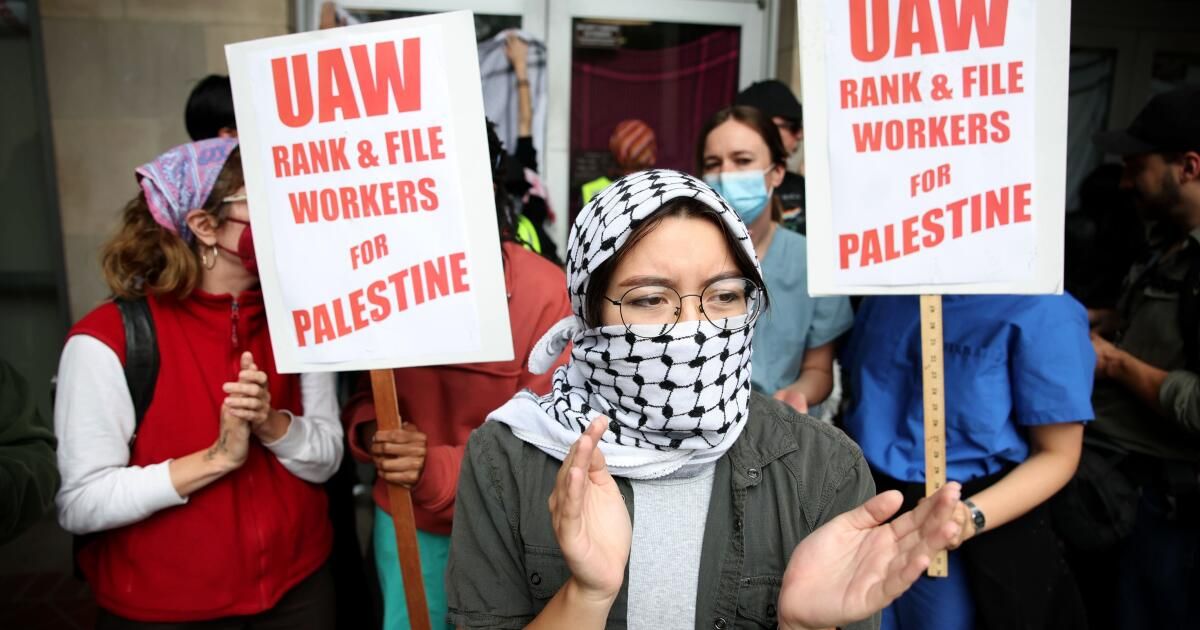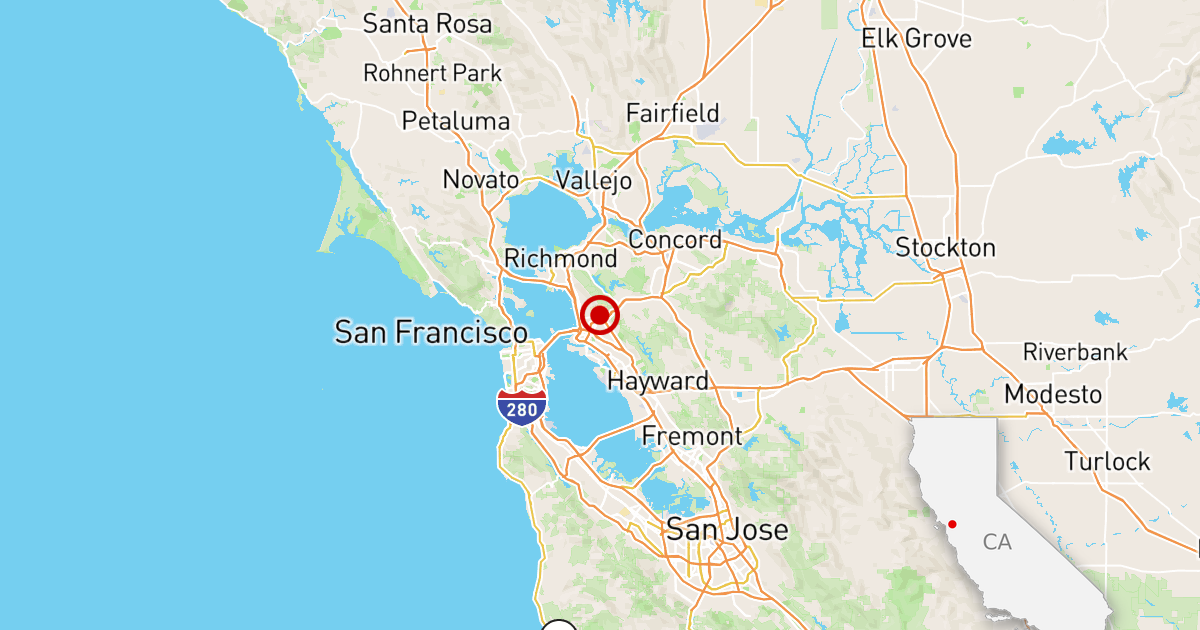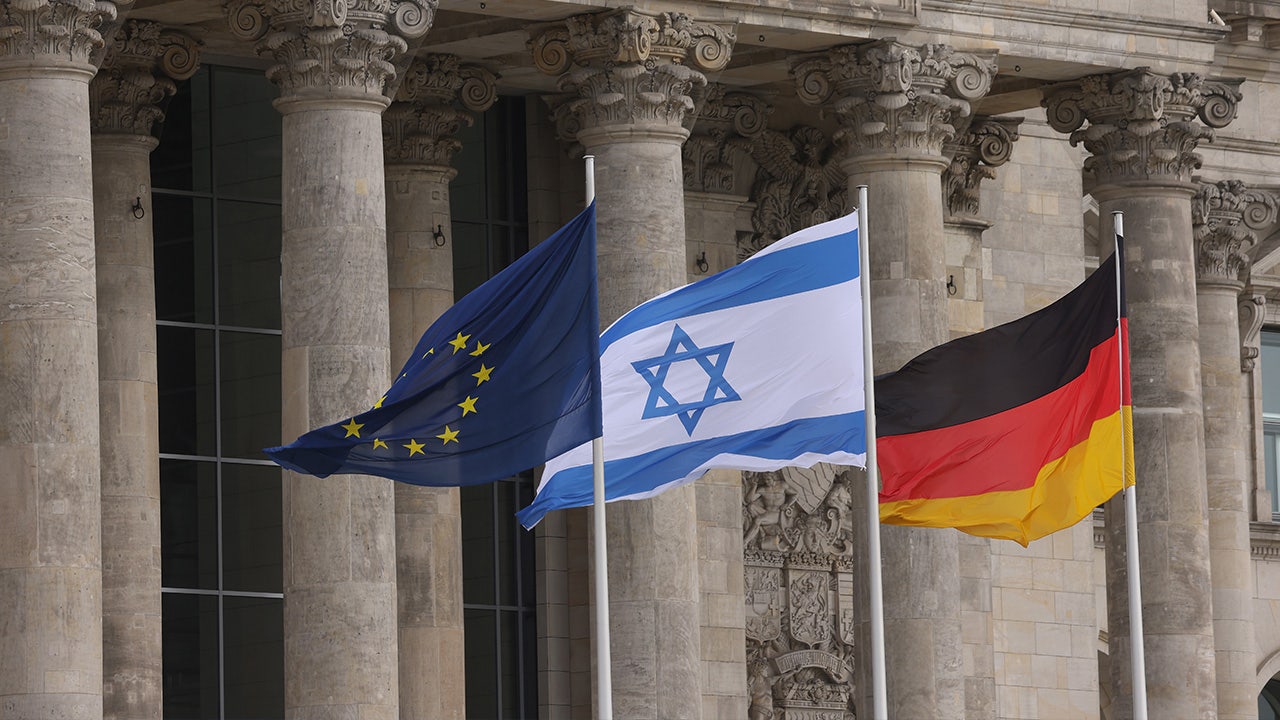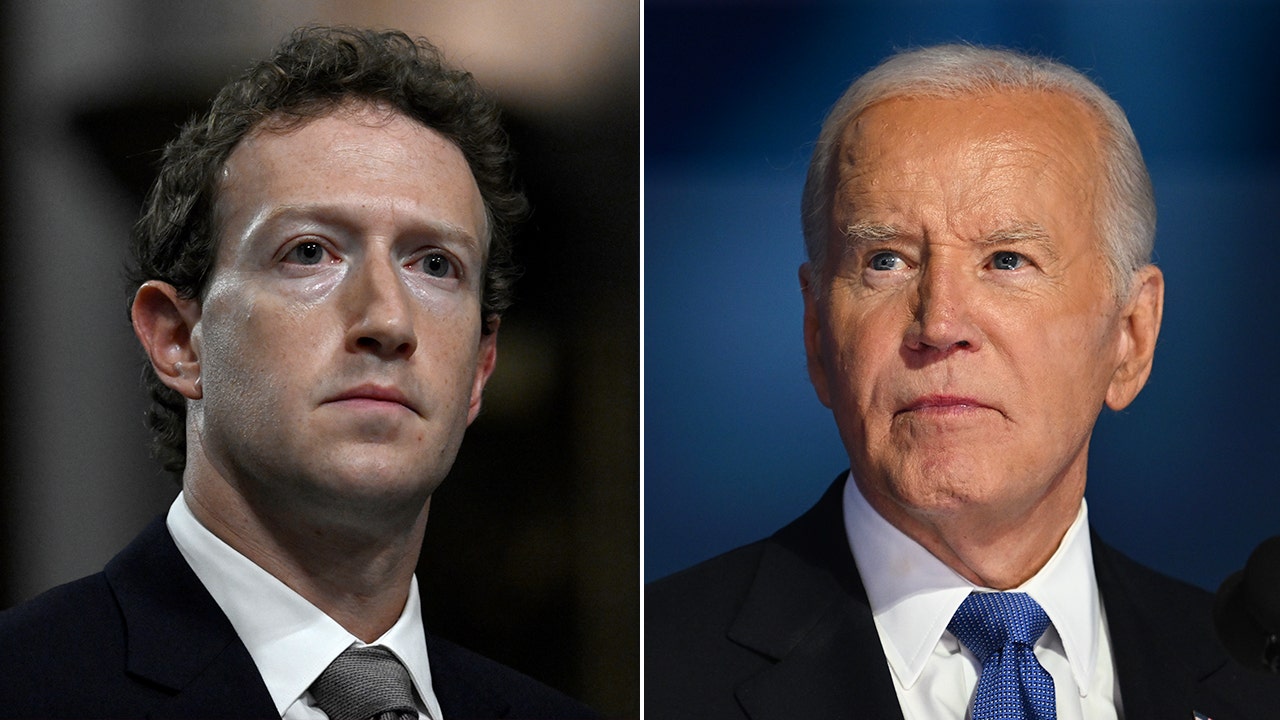The state labor board on Thursday night refused to stop the strike by academic workers at the University of California, ruling that a UC complaint did not meet the legal standard required for its intervention.
UC officials had claimed that the strike was illegal and caused such serious damage that it needed to be stopped. The union representing 48,000 academic workers called the strike over alleged violations of free speech related to protests between Israel and Hamas and other harm to workers.
The continuing strike was launched Monday at UC Santa Cruz by United Auto Workers Local 4811, which represents graduate students, teaching assistants, tutors, researchers and other academic workers across all 10 UC campuses and Lawrence Berkeley National Laboratory.
On Tuesday, the strike is scheduled to spread to UC Davis and UCLA, where academic workers, their supporters and supporters of the Palestinian cause rallied on campus Thursday.
UC officials had claimed that the job action was illegal because of a no-strike clause in the union contract and had sought an injunction from the California Employment Public Relations Board to immediately stop the strike.
The union noted the decision in a social media post:
“Rejection of protection against UC strike DENIED. The UC has had many opportunities to resolve its atrocious ULP [unfair labor practices] and until now he has refused to participate. Now two more campuses are leaving. “UCLA and UC Davis: It’s time to stand up.”
“We are glad that PERB rejected UC's latest demand for special treatment under the law,” said Rafael Jaime, president of UAW 4811. “UC has allowed members of the academic community to be brutalized by violent agitators and has called to the police to trample on the rights of our members in direct contradiction to the UC's own policies. Our workers have walked out of their jobs to demand a resolution to these blatant unfair labor practices. “PERB’s decision to deny his request for an injunction demonstrates that no employer can make its own rules.”
The university radically disagrees with the union's characterization of its actions.
The labor board said the university did not meet the threshold required to intervene.
“The Board currently declines to seek an injunction as requested by the Regents of the University of California (UC), as UC has not established that the injunctive relief is 'fair and appropriate,'” labor officials said.
The board left the matter open “in the event that it becomes aware of evidence or facts that support the conclusion that injunctive measures are fair and appropriate.”
The board's action does not end the legal battle over competing claims before the panel. Labor officials still must deal with complaints of unfair labor actions from each side.
In a statement, the UC alluded to this ongoing process, which could end in its favor in the coming days or weeks.
“We are eager to see a quick and fair resolution to this matter,” the university said.
Shortly after PERB's decision was announced, university officials sent an email to the UC Berkeley campus community, warning that a strike could soon take place there as well.
The union has not yet chosen Berkeley as a strike location.
“While the UAW has not called a strike in Berkeley at this time, [University of California office of the president] is asking all campuses to be prepared for possible activity in case a strike is called,” he said. “Wherever a strike is called, it is expected to last throughout June. Managers and supervisors, please pass this information on to your teams.”
The request for injunctive relief was filed Tuesday afternoon with the California Employment Public Relations Board, which oversees labor-management interactions for public employees in the state.
“Allowing the strike to continue will cause irreparable harm to the University and its students – UAW members play a critical role in end-of-year activities such as teaching, grading, and ongoing and urgent research,” a statement said. from the university published on Tuesday.
Academic workers claim their free speech rights were violated when system leaders asked police to forcibly remove pro-Palestinian encampments on several campuses and UCLA activists were not protected from an attack by pro-Israel supporters. during hours. Police later intervened to dismantle the UCLA camp and made around 200 arrests, including some striking union members.
Union leaders' demands include protecting free speech on campus; an amnesty for all academic employees, students, student groups, faculty and staff who face disciplinary action or arrest due to their participation in protests; and the university's divestment from “weapons manufacturers, military contractors and companies that profit from Israel's war on Gaza.”
University officials claimed the strike is illegal because the goal is to “pressure the University to give in to a list of politically motivated demands closely tied to protests occurring in California and across the country.”
The request for injunctive relief called for “PERB to issue an injunction to effectively end the strike,” said Heather Hansen, a spokesperson for the UC president's office.
UC officials said they support free speech, but that union negotiations “must be tied to the terms and conditions of employment and the terms of the collective bargaining agreement.” The university also cited no-strike provisions in the current contract.
Jaime, the union president, called the university's action disappointing but not surprising.
The union maintains that the strike is legal under rules that allow strikes in response to unfair labor practices. Each party has filed charges with PERB accusing the other of violating labor rules. However, the request for a court order would have triggered an expedited process.
Striking academic workers picket at UC Santa Cruz on Monday.
(Jessica Garrison/Los Angeles Times)












